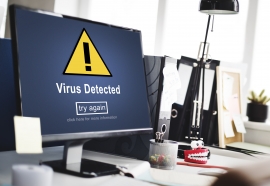In today’s digital world, a reliable and responsive website is essential for businesses of all sizes. A website that works properly, quickly responds to consumer requests and offers an enjoyable experience will help your business stand out from the competition in successful ways. A positive online presence builds consumer trust in your brand, prompting them to revisit your website repeatedly. Furthermore, having a modern website gives potential customers an excellent first impression, showcasing your knowledge and professionalism.
So, investing in a quality website for your business is key to success. However, some factors could cause your website to slow down or crash, and it’s important to be aware of them. Here are reasons why your site might suffer from performance issues:
Poor Coding Practices
Poor coding practices are one of the most common causes of website crashes and performance issues. Outdated code, inefficient algorithms, and unoptimized databases can all lead to slower page loading times and eventual crashes when more users visit your site. To avoid this, always use the latest coding standards when developing new features for your website, test everything thoroughly before making any changes live, and make sure that you optimize your databases for maximum performance.
Server Loads
When websites become popular, they need to be hosted on servers that can handle the increased load generated by more visitors. If your server isn’t up to the task, the site will slow down and eventually crash. To ensure this doesn’t happen, consider upgrading your hosting plan and ensure your web host is reliable and has experience handling high-traffic volumes.
If you’re not sure your website’s slowdown or crash is due to server traffic, you can simply have your server’s health checked. If you’re using a Microsoft SQL server, you can have professionals specializing in SQL server database health checks. They’ll be able to diagnose any underlying problems and suggest the best solutions. They’ll also be able to optimize your database for maximum performance.
Third-Party Plugins and Services
Third-party plugins or services are often used to add functionality or streamline processes on websites, but they can also be a source of instability if they don’t work as expected or if their servers go offline unexpectedly. To minimize this risk, take the time to research any third-party plugins or services before using them on your website, read reviews from other users who have tried them out, and make sure you understand how they will interact with your existing setup before implementing them on your site.
Additionally, always use up-to-date versions of any third-party plugins or services and test them regularly to ensure they are running properly. If you don’t, you might find that your site is suddenly unable to function due to an out-of-date plugin or service.
Unsecured Networks and Devices
Unsecured networks and devices can easily be hacked by malicious actors looking for access to sensitive customer data or company information stored on these devices or networks. To protect yourself from these threats, always use an up-to-date antivirus program on all your computers and mobile devices, as well as strong passwords for all your accounts. Additionally, consider using two-factor authentication to further secure accounts against unauthorized access attempts from hackers trying to gain access through stolen credentials.
And you should always use secure networks for transmitting sensitive data and ensure you encrypt any confidential information stored on your servers. This will help ensure that hackers cannot gain access to sensitive customer or company data even if they manage to breach your security system.
Malware and Viruses

Malicious software such as viruses and malware are capable of wreaking havoc on websites by slowing down page loading times due to resource-hogging processes running in the background as well as outright crashing sites by corrupting files or injecting malicious code into webpages which then cause errors when visitors try accessing those pages on their browsers.
To prevent these types of issues, make sure to regularly scan your website for any malicious software and remove it as soon as possible. Also, consider using a web application firewall that can help prevent malicious actors from accessing your site in the first place.
A website crash or slowdown can be a huge setback for any business, regardless of size. To avoid these disasters, it’s important to consider all the potential causes that could lead your site down this path. Poor coding practices, server loads, third-party plugins and services, unsecured networks and devices, and malware and viruses are some of the main culprits behind slowdowns and website crashes. Taking proactive steps such as using up-to-date coding standards when developing new features, researching third-party plugins before implementing them on your website, and ensuring you have an up-to-date antivirus program installed will help ensure that your website is always running smoothly without compromising security in any way.

Be the first to comment on "Avoid Website Disasters: Reasons Your Site Could Slow Down or Crash"